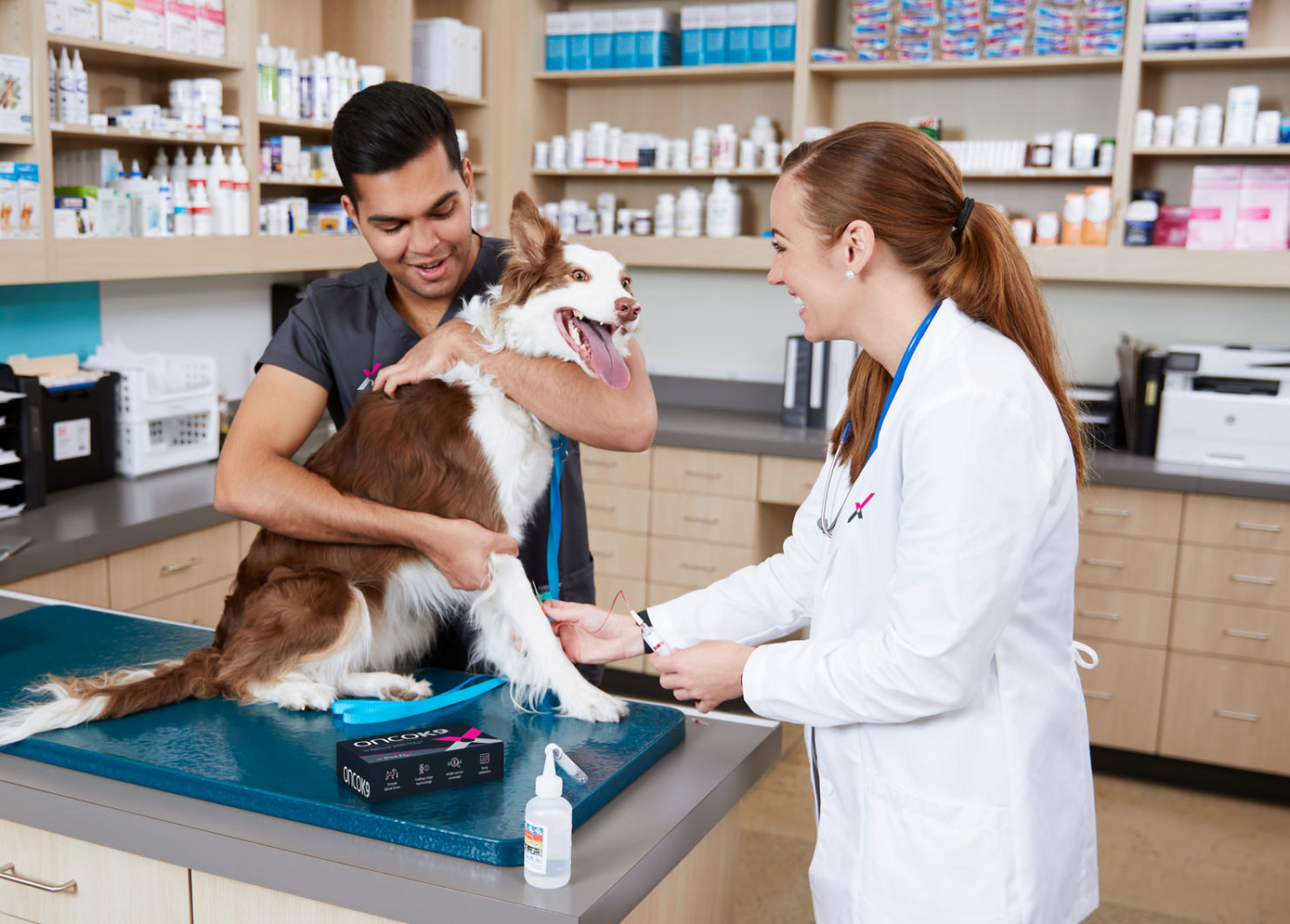PetDx: Publication of Clinical Validation Study for Early Detection Cancer Test
Glenn Polyn//April 29, 2022//
PetDx: Publication of Clinical Validation Study for Early Detection Cancer Test
Glenn Polyn //April 29, 2022//
Press release: PetDx
PetDx, the Liquid Biopsy Company for Pets, recently announced the publication of a landmark study in PLOS ONE, a peer-reviewed open access scientific journal from the Public Library of Science.
The publication details the largest clinical validation study ever performed in veterinary cancer diagnostics and demonstrates that the performance of OncoK9 – The Liquid Biopsy Test for Dogs mirrors that of leading multi-cancer early detection (MCED) tests for humans.
The CANcer Detection in Dogs (CANDiD) study, an international, multi-center clinical study, was designed to validate the performance of OncoK9–a novel MCED test for dogs using next-generation sequencing (NGS) of blood-derived DNA.
“PetDx has made an unprecedented investment over the past few years to develop and validate a blood-based test for the detection and characterization of cancer in our canine companions. This landmark study, and our rich R&D pipeline in veterinary oncology, underscore our commitment to building PetDx into the world’s leading veterinary cancer diagnostics company,” said Daniel S. Grosu, MD, MBA, founder and CEO of PetDx.
The study was performed on blood samples collected prospectively from more than 1,000 client-owned dogs at more than 40 clinical sites across the United States, Canada, Brazil, the Netherlands, France and Hong Kong between 2019 and 2021. The results demonstrated the test’s ability to detect 30 different types of canine cancer, with sensitivity of 85.4 percent for three of the most aggressive canine cancers (lymphoma, hemangiosarcoma and osteosarcoma) and overall sensitivity of 54.7 percent, at a specificity of 98.5 percent (corresponding to a false positive rate of just 1.5 percent).
“The pace of enrollment into this study across the globe was truly inspiring: dog owners as well as veterinarians are eager to have a non-invasive cancer detection test and were happy that their dogs could be part of this groundbreaking research. Having this new tool in the toolbox is incredibly exciting for veterinarians; earlier detection, when incorporated as part of preventive care, can improve cancer outcomes and may shorten the path to diagnosis in clinically challenging cases,” said Andi Flory, DVM, DACVIM (Oncology), chief medical officer at PetDx and the study’s lead author.
Cancer is by far the leading cause of death in dogs, with approximately 6 million new cases diagnosed each year in a population of approximately 90 million pet dogs in the United States. Currently there are no established cancer screening guidelines for dogs, and the majority of cases are diagnosed only when dogs start to show clinical signs, by which time the cancer is often advanced and the chances of achieving a cure or long-term control are low.
“Our clinic was honored to participate in the CANDiD study, which we found to be a meticulously executed prospective-collection study that dog parents were really excited to participate in. My own dogs, Buccee and Bella, were the very first enrollees at our hospital, and they are proud to have contributed to such a monumental effort to help dogs with cancer,” said Tracy LaDue, DVM, DACVIM (Oncology), DACVR (Radiation Oncology), medical and radiation oncologist at Southeast Veterinary Oncology and Internal Medicine and PetCure Oncology, Jacksonville, Florida, which was the study’s first clinical site and enrolled 88 dogs.
OncoK9, the first and only “liquid biopsy” test for the detection of cancer-associated genomic alterations in veterinary patients, is currently recommended as an annual screening test for dogs at higher risk of cancer due to age and/or breed, and as an aid-in-diagnosis for dogs in which cancer is suspected based on clinical signs or other clinical findings. Given the prevalence of cancer in these canine patient populations, the test’s positive predictive value (PPV) – which describes the probability that a patient with a positive OncoK9 result does in fact have cancer–is estimated to be 76-80 percent in the screening use case and 94-97 percent in the aid-in-diagnosis use case. Further studies are underway to support the application of the test in additional use cases, including minimal residual disease detection, recurrence monitoring, treatment response monitoring, and targeted treatment selection.
“During the past decade, novel genomic testing solutions using liquid biopsy technology have catalyzed paradigm shifts in multiple areas of human medicine, such as oncology, obstetrics, infectious disease, and organ transplantation. Our team is delighted to bring this revolutionary innovation to veterinary medicine, starting with a detection solution for cancer – the biggest health threat faced by humanity’s best friends,” said Dana Tsui, PhD, chief scientific officer at PetDx and the study’s senior author.
Since its launch in 2021, the OncoK9 liquid biopsy test has been successfully integrated into routine testing at many hundreds of leading veterinary practices nationwide as a new preventive care and aid-in-diagnosis tool. Today, blood samples from all over the country are shipped daily to the PetDx central laboratory in San Diego, and results are delivered to ordering veterinarians within 10 business days. The test is available at veterinary clinics in the United States and Canada through PetDx and IDEXX Reference Laboratories.



















